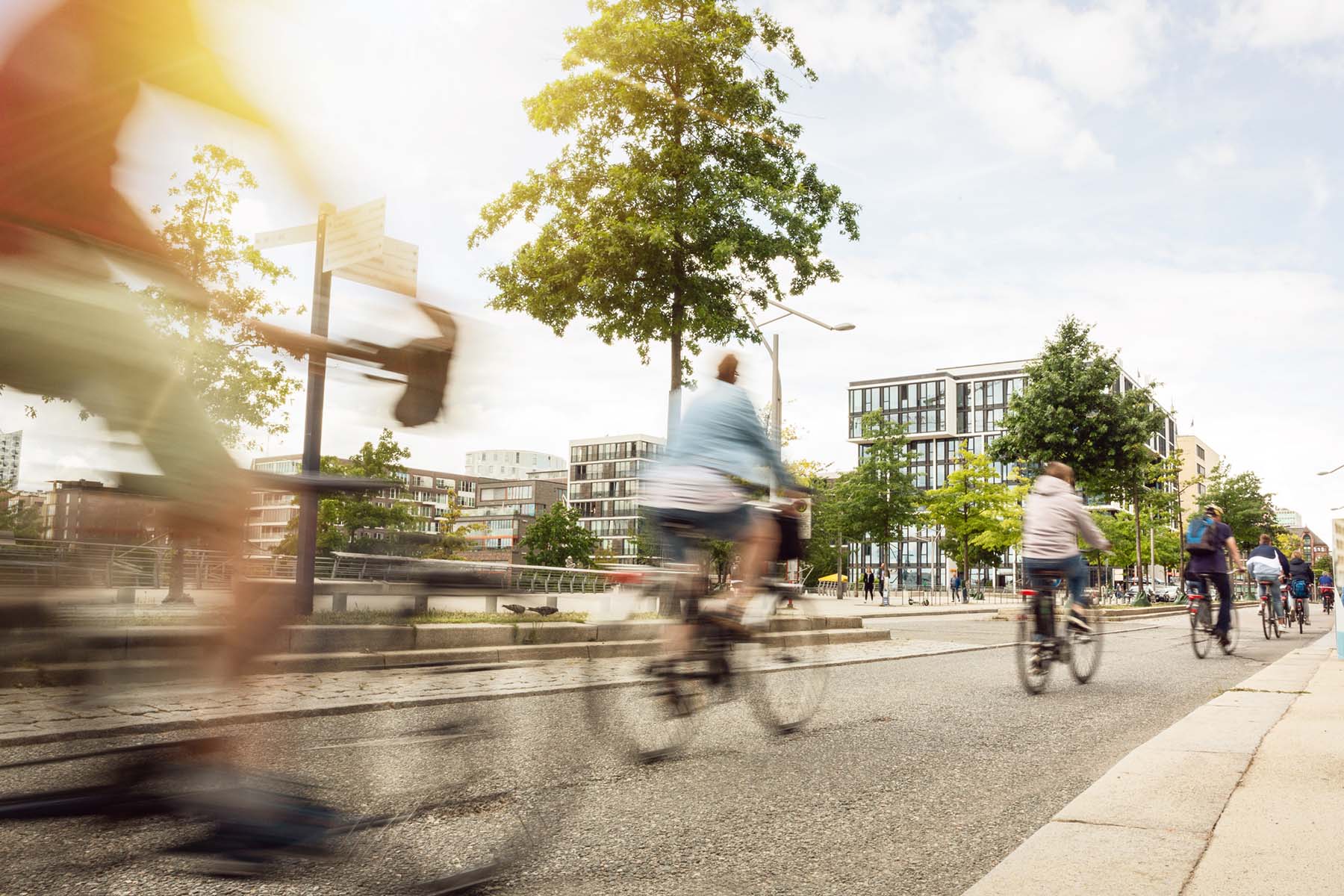FAQ
Frequently asked questions on mobility & sustainable cities
What is a smart city?
A smart city is a modern metropolitan area that is built on technological and social innovation to achieve a high level of well-being for its residents. This includes, for example, sustainable urban transit or forward-looking urban development, participatory structures and inclusivity. Learn more about it.
What makes a city sustainable?
Sustainable cities are characterized by a high quality of life. The sustainability of a city is characterized by its impacts in social, environmental, and economic terms. The urban footprint, as well as safety and job prospects, can shape a city’s sustainability. Eco city or green city are also common names for modern metropolitan areas that strive for urban sustainability.
How can urban planning help to deal with climate change?
Urban planning is strongly related to climate change. On the one hand, many people in urban areas are affected by the impacts of climate change – for example, through the development of heat islands. Therefore, cities also need to undertake climate change adaptation measures. On the other hand, urban spaces generate high greenhouse gas emissions that must be reduced in order to mitigate climate change. Urban planning has to react to both topics.
How to achieve sustainable transportation?
Sustainable transportation can be achieved through accessible, sustainable, and healthy mobility systems. In addition to reducing transportation-related emissions, sustainable transportation also seeks affordable and accessible solutions for society and the economy.
Why is sustainable transportation important?
Sustainable transportation is important because transportation has a huge environmental and social impact. Solutions for sustainable transportation such as expanded public transportation infrastructure can reduce carbon emissions, foster economic growth, and contribute to the satisfaction and quality of life of society. Moreover, a comprehensive view of sustainable transport is important for companies that want to reduce their transport-related emissions.





